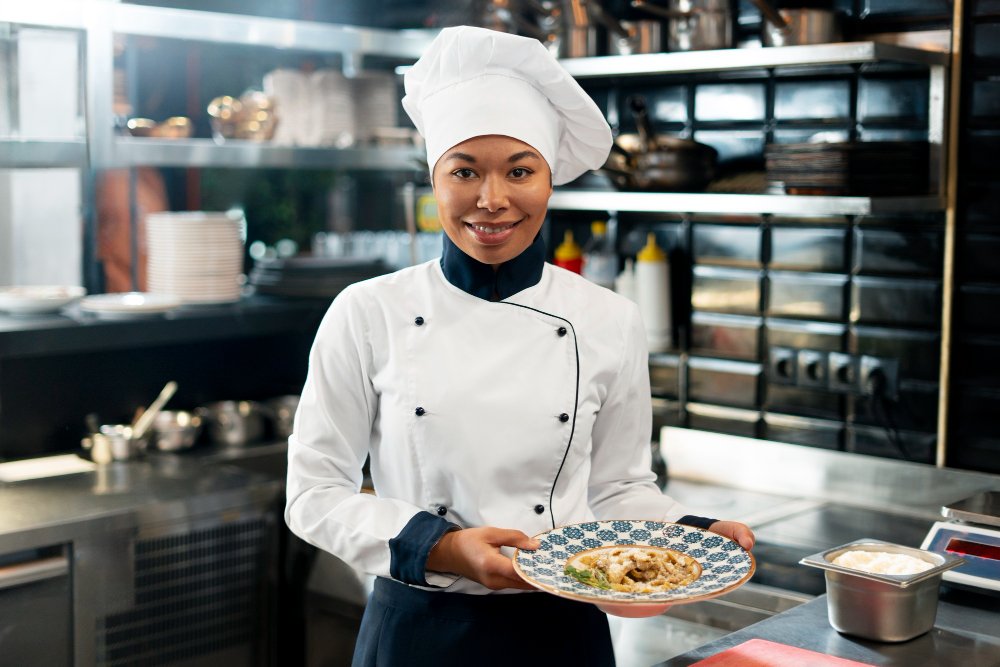The journey to becoming a Chef de Partie usually starts with hands-on experience in the kitchen. Many chefs begin their careers as commis chefs, where they learn the ropes of food preparation, knife skills, and kitchen operations under the guidance of more experienced chefs.
As they gain more experience, they can move up to the role of Chef de Partie, managing their own station and contributing directly to the kitchen’s success. From there, the possibilities only expand.
With dedication and expertise, a Chef de Partie can progress to more senior roles such as Sous Chef and eventually Head Chef. For those with a passion for a particular area of cooking, there are opportunities to specialize, like becoming a Pastry Chef or Saucier—roles that require specific skills and deep knowledge of certain culinary techniques.
For some, the dream goes beyond the kitchen. Experienced Chef de Parties sometimes move into restaurant management, open their own eateries, or even branch out into culinary education, training the next generation of chefs. It’s a role that opens doors not just locally but internationally, as well-trained chefs are always in demand around the world.
Working Conditions for a Chef de Partie
Working as a Chef de Partie can be demanding but incredibly rewarding. The kitchen environment is often busy and fast-paced, especially during service times. Long hours are typical, and weekends or holiday shifts are common, but the experience is also incredibly enriching.
Kitchens are vibrant spaces filled with energy, teamwork, and creativity. Whether you’re searing steaks at the grill station or crafting delicate pastries, every day brings something new. However, it’s important to be prepared for the physical demands: standing for long hours, working in high heat, and managing the pressures of peak service times.
That said, for those who thrive on adrenaline and love the art of cooking, the role of a Chef de Partie is both satisfying and inspiring. It’s a career that rewards passion, precision, and perseverance.
Frequently Asked Questions (FAQs)
What is the difference between a Chef de Partie and a Sous Chef?
A Chef de Partie manages a specific section of the kitchen, such as grilling or pastry, while a Sous Chef is second-in-command to the Head Chef and oversees the entire kitchen operation, including multiple stations.
What education is required to become a Chef de Partie?
While formal culinary education isn’t always necessary, many aspiring chefs attend culinary schools or complete apprenticeships to gain foundational skills. Practical, hands-on experience in a kitchen is just as important, if not more.
Is being a Chef de Partie a stressful job?
It can be, especially during peak hours and large events. However, many chefs thrive under this pressure, finding it both exhilarating and rewarding. Good time management and teamwork can help ease the stress.
How much does a Chef de Partie earn?
Salaries for a Chef de Partie vary based on location, experience, and the type of establishment. High-end restaurants and hotels tend to pay more, while entry-level positions may offer modest wages. Some chefs also earn additional income through tips and performance bonuses.
Can a Chef de Partie work internationally?
Absolutely! The skills gained as a Chef de Partie are highly transferable, allowing chefs to find work in kitchens around the world. Many chefs take advantage of this to experience new cuisines and cooking techniques globally.
Conclusion
The role of a Chef de Partie is central to any kitchen’s success. It requires a unique blend of technical skill, time management, leadership, and creativity. For those passionate about food and eager to climb the culinary ladder, this position is an excellent stepping stone.
Whether you dream of mastering the art of fine dining, running your own restaurant, or traveling the world as a chef, starting as a Chef de Partie builds the foundation for a fulfilling career in the culinary world. With each dish you perfect and every service you master, you’re one step closer to achieving your culinary dreams.
